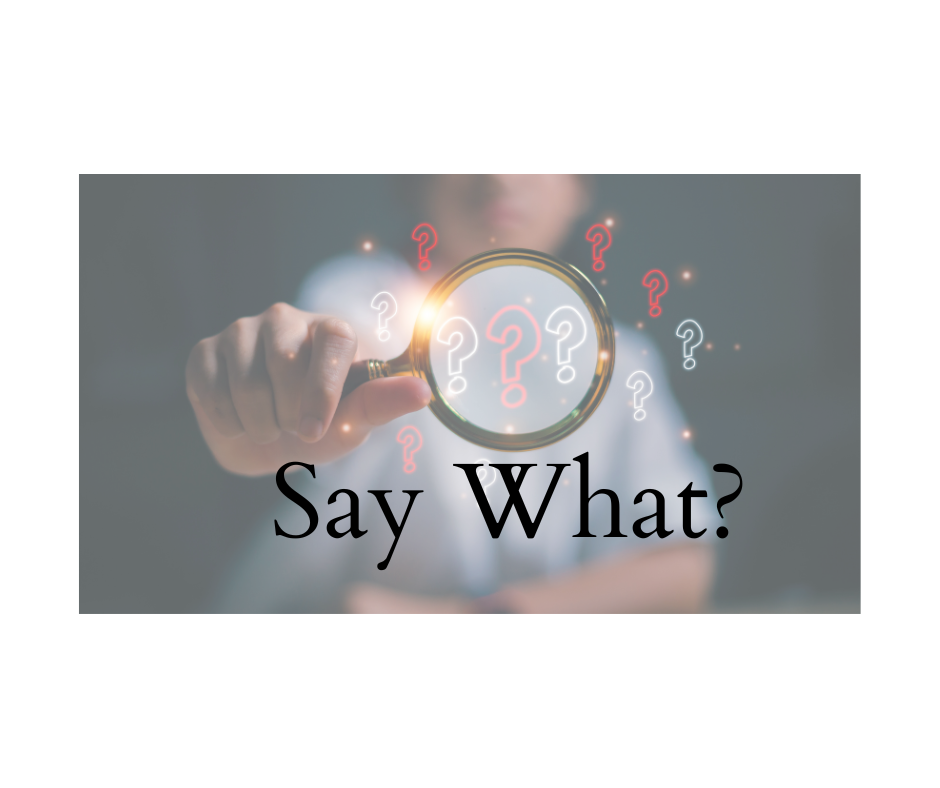Don’t Be in Error of Circumlocution
Here’s a simple way to tighten up your writing: look for phrases using be in your passages.
Verb phrases using be can often be simplified or better said with a simple verb. Here are some circumlocutory uses of be words that are common and create clunky writing, followed by the suggested replacement verb:
- Be abusive of (abuse)
- Be benefited by (benefit from)
- Be desirous of (desire or want)
- Be in agreement (agree)
- Be in error (err)
- Be in possession of (possess)
- Be in receipt of (received)
- Be supportive of (support)
It’s much simpler and smoother to say “We desire a change in the schedule, and if you would support us, you’ll receive a lot of praise” than “We would be desirous of a change in the schedule, and if you would be supportive of that, you’ll be in receipt of much praise.”
Now if we can be in agreement that the former sentence is better than the latter, we might be benefited by it.
I hope you didn’t like that last sentence either.








This is excellent advice, Susanne! Thanks! I guess I’m going to be going back through my recent m/s on another edit 🙂
And it’s funny how speakers in executive meetings use this circumlocution, I suppose to impress people.
But what do you think of another trend, heard even on NPR, of using “more” with an adjective when it doesn’t need one?
More shiny (shinier); more pretty (prettier); more rough (rougher) and so on.
I always enjoy reading your words of wisdom before starting my day. Today’s comment is very helpful. 🙂
That’s the same issue. Overwordiness 🙂
Yeah, people keep saying that more is not always better 😀 Sorry, couldn’t resist!
I agree! How about “less is more”? More or less …
Less shiny, less pretty? Hm. That might actually be true in this case. I can’t think of a word that would substitute a less shiny. Shinylesser? Too bad uglier ruins it.
Dull, lackluster, tarnished, nonreflective. It depends on why you need to use that word and what it’s describing, right?
Yup, the right tool for the job. A more precise word is usually better. Preciser? Preciser.
This makes me think of how I refer to my dog. He’s the bestiest lab in the world. Sometimes the bestest.
Lol. I was surprised to find preciser in the dictionary. It sounds wrong.
I agree! I would never use it. English is just wonky.
We all have “B” words, don’t we? Thankfully, be is not one of my writing tics. Now, “but” on the other hand… Brutal!
Actually, that last sentence sounds like it was said by a medieval scholar or something. Might be very appropriate if you have a medieval scholar type of character somewhere in the story. Otherwise, yeah, it sounds silly.
What I find interesting about you post, Suzanne, is that it demonstrates how language evolves and changes over time. That second sentence would have been ‘proper’ English say 150 years ago or so, but now is an example of over writing.
So true, and as Catie said, it could be fine for a specific type of character. Characters get to break all the grammar rules! But in our narrative and general writing, it’s usually best to be clear and concise 🙂